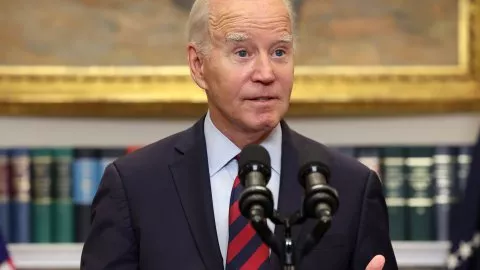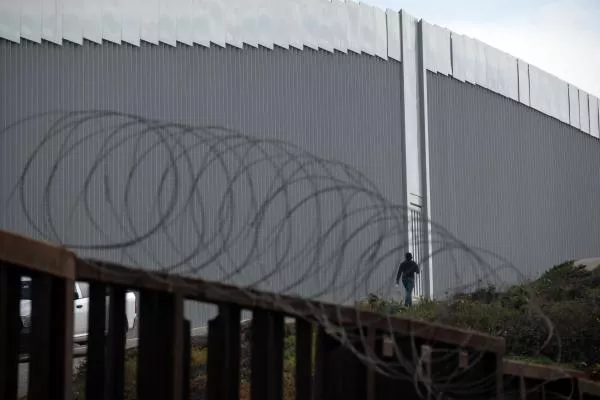
The Biden administration has been selling off materials that were supposed to be used to construct barriers at the border with Mexico just days before it approved the construction of a new, 20-mile stretch of border wall.

Listings on GovPlanet, an auction site for state, local and federal agencies to auction off surplus inventory, show it has been selling off lots of square iron and steel wall tubing for tens of thousands of dollars as recently as Wednesday. On Thursday, the Department of Homeland Security approved the construction of the new border wall along the Rio Grande Valley in Texas.
The auction house still has active lots available, which do not end until the latter half of October. The Biden administration said it only approved the new wall because the funding for it had to be used and construction completed in 2023.
When news of the auctions first emerged in August, Republicans accused the federal government of wasting taxpayers' money. The recent approval of a new stretch of barrier raises questions as to whether the decision to sell off the materials—which are located in Red Rock, Arizona—may have been short-sighted on behalf of the administration.

Newsweek approached the White House and the U.S. Army Corps of Engineers (USACE) via email for comment on Friday.
When asked if he thought a border wall worked—having said during the 2020 election that "not another foot of wall would be constructed" under his watch—the president, sitting in the Oval Office on Thursday, responded with a flat: "No."
He added that the money for the wall had been appropriated in 2019 before he took office, and though he attempted to get the funding redirected, Congress had refused. However, his administration has faced criticism for waiving 23 federal laws to get the border wall construction going.
According to the GovPlanet listings, in October alone the U.S. government made a total of $115,910 from the metal fencing tubes, which measure 28 feet long and are typically anchored into the ground with concrete. The latest four lots, sold on October 4, saw prices ranging from $25,700 to $32,505.
Across September, it recouped $455,100 from numerous lots of different quantities which attracted a range of winning bids. Previous estimates suggest it made around half a million dollars from the sales in August, with listings dating further back in the year.
A USACE spokesperson previously told Newsweek that the materials were being disposed of "in accordance with the Federal Acquisition Regulation."
"USACE has already transferred approximately $154 million worth of the roughly $260 million of bollard panels and other materials in accordance with standard excess property disposition procedures," a spokesperson said at the time. "USACE stands ready to implement a decision regarding disposition of the remaining materials."
In September, Republicans on the House Oversight Committee announced it was investigating reports of the materials being sold off, requesting documents from USACE to aid the probe. While former President Donald Trump had made border wall building a centerpiece of his administration, Biden halted all construction when he came into office in 2021.
"The Biden administration's decision to sell already purchased border materials is [a] waste and abuse of taxpayer dollars," House Oversight Committee chair James Comer previously wrote in a statement. "We should be using tools already at our disposal to stop the surge of illegal border crossings. When someone is repeatedly breaking into your home, you don't sell the locks on the door."
While Republicans have
touted border walls as an effective form of deterrent to undocumented
migration—which in the 11 months to August has seen 2.2 million
encounters along the southern border—the Biden administration notes that
the hollow tubes can be cut through with conventional power tools while
border agents cannot police the entire length of the international
boundary
No comments:
Post a Comment